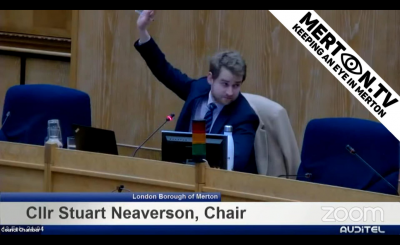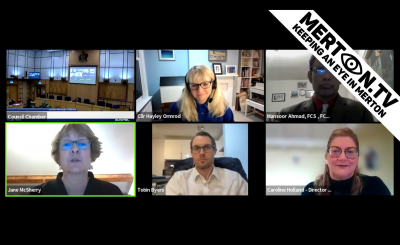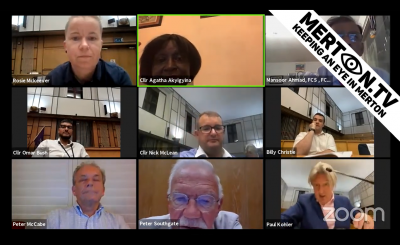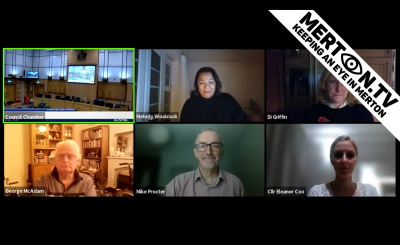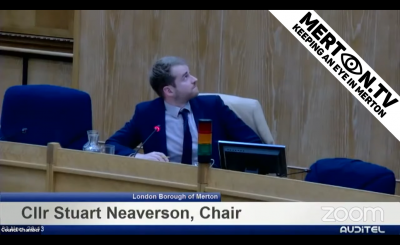Venue: Committee Rooms C, D & E – Merton Civic Centre, London Road, Morden SM4 5DX
| No. | Item |
|---|---|
|
Apologies for absence Minutes: Apologies for absence were received from Mr Saleem Sheikh. |
|
|
Declarations of pecuniary interest Minutes: There were no declarations of pecuniary interests |
|
|
Minutes of the previous meeting Minutes: The minutes of the previous meeting were agreed as a true and accurate record. |
|
|
Primary Care Strategy – Merton Clinical Commissioning Group Minutes: A panel member asked if the Personal Independent Payment process issues are being pursed through political channels. The Scrutiny Officer reported that this is hand and correspondence is currently being drafted. Katie Denton, Director for Primary Care and Karen Worthington Clinical Director Transforming Primary Care gave an overview of the report highlighting that there has been significant investment to improve access this has resulted in a local incentive scheme for surgeries to deliver core and extended hours. They have set up two GP access hubs with two GP’s on duty at both sites instead of one, other improvements include; additional nursing services, blood pressure checks, chronic health management and cervical screening services in the evening. It was reported that challenges include; patients attending surgeries on a Sunday is low in Merton and nationwide. Non-attendance rate for appointments is at 15%. Raising the profile of the hubs amongst local community remains an issue. It was also reported that the social prescribing pilot was successful, there has been a reduction in GP appointments and an improvement in the wellbeing measure amongst those who participated. A panel member reported that patients found blood testing and other samples was laborious as they had to attend different sites, people should be able to hand them into their local surgeries. The Director for Primary Care reported that the Practices are starting to work as networks and it is expected there will more changes over the next 18 months. The Clinical Director Transforming Primary Care said the situation is complex, it is due to IT system in the practice and historical set up, some tests cannot stand overnight and there is a pick time. More practices are signing up for phlebotomy services which will help the situation. A panel member asked if they are monitoring GP feedback, it was reported that they do monitor GP feedback and conduct surveys once every six months as well as consider intelligence from clinical leads. This information is all fed back to the CCG. A panel member said access is an issue and asked if there are any key performance indicators for surgeries. The Clinical Director Transforming Primary Care said practices must provide a specific number of appointments per week. Practices themselves have put in a number of measures such as morning and evening surgeries. Other professionals such as social prescribers also help to free up GP time. Merton has scored 5th in the country for best access to appointments. In response to a query on digital access and how to ensure senior citizens are not excluded from access if they are not able to use digital means, it was reported that the CCG are committed to ensure that new systems do not disadvantage any groups of patients. The complaints system is one way to monitor this, there is some concern about the ease of getting through on the telephone. Merton is below the benchmark and it is hoped that online access will free up telephone time. The Director for Primary Care gave an overview of workforce issues highlighting that many professionals are coming to retirement age, there is a programme of work trying to attract new GPs into the borough. A new GP contract will support recruitment and retention and there is a new overseas GP recruitment programme, it is early days but it is hoped this will increase capacity in primary care. A panel member asked if there is there is an increasing gap between supply and demand for retiring GPs. The Director for Primary Care said the government has projected some ambitious figures for increasing GP numbers. Merton is focused on making the borough a good place to work so GPs want to work here and we are able to retain them locally. A panel member asked if surgeries are tackling loneliness amongst older people which can be causing them to seek GP appointments. The Director of Primary Care said social prescribing will help to address this issue and will help patients with their wellbeing. It will be rolled out to all practices across the borough and is currently funded for two years. RESOLVED The Officers were thanked for their report and for attending the meeting. |
|
|
Accident and Emergency Services – Reducing Pressure and Supporting Frequent Attenders Additional documents: Minutes: The Deputy Director of Acute Redesign and Pathways gave an overview of the report highlighting that the NHS 111 service seeks to increase the number of calls handled by a clinician which will reduce the need for onward referral or signposting. The Head of Integrated Care and Mental Health said they have developed a number of initiatives to support people at A&E .For example frequent attenders can go to crisis café or are directed to primary care. A panel member asked how we define frequent attenders The Deputy Director of Acute Redesign and Pathways said primary care define it as six times in 12 months and hospital schemes define it as the top 50 most attending. A panel member asked for more information on the Crisis Café. The Head of Integrated Care and Mental Health said it is for adults over 18. It is a social model they can attend the café and people are there to provide support and there is no need for a referral. It was also agreed to provide more information on the mental health support for the under 18s. A panel member asked if business type cards are given to people so they are aware of the correct numbers to call in a moment of panic or great need. The Deputy Director of Acute Redesign and Pathways reported that South West London have various communication methods and recognise that there is an ongoing challenge to know who to call. A panel member asked if the pressure on A&E in South West London is greater than the national average. The Deputy Director of Acute Redesign and Pathways said all Trusts nationally are failing to meet the four hour wait target in A&E, this is a challenge everywhere. Resolved Officers were thanked for their report. |
|
|
Transitions Task Group – update report Minutes: Councillor Rebecca Lanning reported that Panel will receive the final report and recommendations from the task group in June. She highlighted that they decided to focus on Special Educational Needs and Disability as there had been serious failings in half of inspection reports around the country. Many transitions services can find it challenging to deliver a streamlined service. The task group has focused on the following areas:
|
|
|
Work Programme Report Additional documents: Minutes: The Scrutiny Officer gave an overview of the report and reminded Panel members that the topic selection workshop will take place on the 20th May. A panel member said they were pleased with the previous work programme as the Panel had been provided with a varied range of organisations to scrutinise. The following suggestions were made for the 2019/2020 work programme;
|

